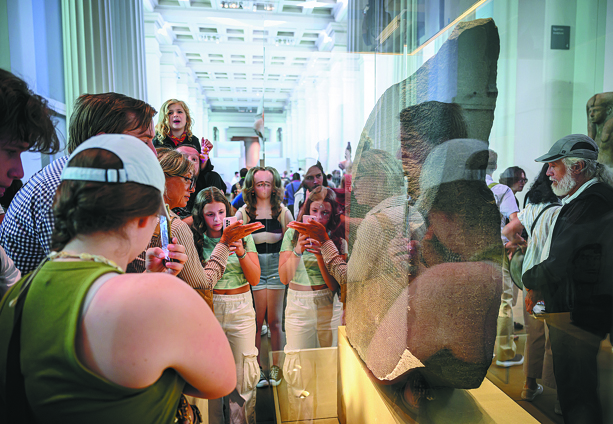Art in crisis: Thefts spark doubts over British Museum


Alert ignored
The items involved are dated from 15th century BC to 19th century AD, and had been kept primarily for academic and research purposes.
Osborne told BBC Radio 4's Today program that not all of the items were "properly cataloged and registered".
The BBC reported that art dealer Ittai Gradel alerted the museum in February 2021 when he saw items that belonged to it for sale online, but he received a reply from Williams in July that year, saying "there was no suggestion of any wrongdoing".
Senior figures dismissed suggestions of theft as "wholly unfounded", and emails sent to Osborne said "all items are accounted for". But the truth was very different.
"It is evident that the British Museum did not respond as comprehensively as it should have in response to the warnings in 2021, and to the problem that has now fully emerged … the responsibility for that failure must ultimately rest with the director," Fischer's resignation letter said.
Though it is called the British Museum, the most frequently searched term on its website is "Egypt". Despite the location, many of its most famous pieces are from much further afield.
For many years, questions have been asked — and not always satisfactorily answered — about how some of them ended up in British hands.
Sloane, whose life's collection started the museum, was a highly respected medic, promoting inoculation against smallpox, and becoming president of both the College of Physicians and the Royal Society. But the museum's own biography of him acknowledges that he worked on slave plantations, and that his wife's family fortune, which helped fund his collection, also had links to slavery.
In addition to the contentious provenance of many of its exhibits, the security lapses exposed by the scandal have demolished the suggestion that the British Museum is a safer repository for priceless items of international cultural significance than their places of origin.
One of the most high-profile examples of this is the long-running dispute with Greece over the marble friezes from the Parthenon in Athens, acquired by Thomas Elgin in the early part of the 1800s and subsequently sold to the museum. The other is the Benin bronzes, brought back by British soldiers from what is now southern Nigeria, in the late 19th century.
Member of Parliament Bell Ribeiro-Addy, chair of the all-party parliamentary group on Afrikan reparations, told The Guardian that the recent scandal, and the fact that there is a specific law — the 1963 British Museum Act preventing the return of such objects — highlighted the "insulting ridiculousness" of the situation.


















